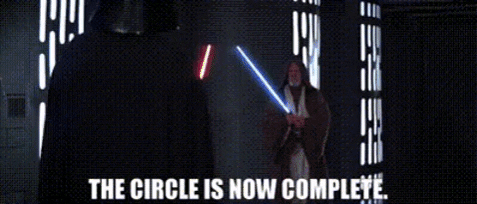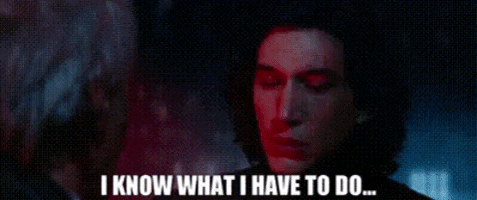I traded my birthright for a life submission in a World that's ruled by your enemies.
Every preference of a small good to a great, or a partial good to a total good, involves the loss for the small or partial good for which the sacrifice was made.
Apparently The World is made that way.
If Esau really got the pottage in return for his birthright, then Esau was a lucky exception.
You can't get second things by putting them first; you can get second things only by putting first things first.
From which it would follow that the question, “What things are first?” is of concern not only to philosophers but to everyone.
To preserve civilization has been the great aim; the collapse of civilization, the great bugbear.
Peace, a high standard of life, hygiene, transport, science and amusement - all these, which are what we usually mean by civilization, have been our ends.
Perhaps it can't be preserved that way.
Perhaps civilization will never be safe until we care for something else more than we care for it.
What is the first thing?
The only reply I can offer here is that if we do not know,
then the first, and only practical thing, is to set about finding out.
CS Lewis, God in the Dock
And I began to realise a little bit
about How this stuff Works.
So beyond that, I decided: “I won’t
just use it to get laid --" , because it
seems a pretty low-grade kind
of way of dealing with magic.”
But man, it WORKS, Believe me!
[AFTER Kal-El and Lois sleep together in the Fortress of Solitude, Kal-El addresses the image of his father, Jor-El]
Jor-El:
The people of your planet are well pleased with you, Kal-El. You have served them faithfully and they are grateful for it.
And yet you have returned to reason with me once again.
My son, I have tried to anticipate your ever question.
This is one I'd... hoped you would not ask.
Kal-El:
My attatchments, um, the feelings which I have developed for a certain human being have deeply affected me, Father.
Jor-El:
You cannot serve humanity by investing your time and emotion in one human being at the expense of the rest.
The concepts are mutally exclusive.
Kal-El:
And if I no longer wish to serve humanity...
Jor-El:
Is this how you repay their gratitude?
By abandoning the weak, the defenceless, the needy for the sake of you selfish pursuits?
Kal-El:
Selfish!? After all I've done for them?
Will there ever come a time when I've served enough?
At least they get a chance for happiness.
I only ask as much, no more.
Jor-El:
Yours is a higher happiness.
The fulfillment of your mission, as inspiration you must have felt.
You must have felt that happiness within you.
My son, surely you cannot deny that feeling.
Kal-El:
No, I cannot... any more than I can deny the other, which is stronger in me, Father.
So much stronger.
[TODAY.]
Is there no way then, Father? Must I finally be denied the one thing in life which I truly desire?
Jor-El:
If you will not be Kal-El, if you will live as one of them, love their kind as one of them, then it follows that you must become one of them.
This crystal chamber has in it the harnessed rays of the red sun of Krypton.
Once exposed to them all your great powers on Earth will disappear... forever.
Once this is done, there's no going back.
You will feel like an ordinary man and you can be harmed like an ordinary man.
Think, Kal-El, I beg you.
Kal-El:
Father... I love her.
[Yeah, Today....]
Jor-El:
Think, Kal-El.
[Kal-El steps into the chamber]
Father? If you can hear me, I failed.
I failed you, I failed myself, and... and all humanity.
I traded my birthright for a life submission in a world that's ruled by your enemies.
There's nobody left to help them now... the people of the world... not since I... !!!FATHER!!!
Jor-El:
Listen carefully, my son, for we shall never speak again.
If you hear me now then you have made use of the only means left in you:
The crystal source through which our communications began.
The circle is now complete.

You have made a dreadful mistake, Kal-El. You did this of your own free will in spite of all I could say to dissuade you.
Clark Kent:
I, uh...
Jor-El:
Now, you have returned to me for one last chance to redeem yourself.
This too finally I have anticipated, my son.
Clark Kent:
Father, no...
Jor-El:
Look at me, Kal-El.
Once before when you were small, I died while giving you a chance for life.
And now, even though it will exhaust the final energy left within me-
Look at me, Kal-El.
The Kryptonian prophecy will be at once fulfilled.

The son becomes the father, the father becomes the son.
Farewell forever, Kal-El.
Remember me, My Son.
“Mark Millar, Tom Peyer, Mark Waid, and I had approached DC in 1999 with the idea of relaunching Superman for a new generation in a series to be entitled Superman Now or Superman 2000, depending on which version of the story synopsis you read.
We’d spent many enjoyable hours in conversation, working out how to restore our beloved Superman to his preeminent place as the world’s first and best superhero.
Following the lead of the Lois and Clark TV show, the comic-book Superman had, at long last, put a ring on his long-suffering girlfriend’s finger and carried her across the threshold to holy matrimony after six decades of dodging the issue—although it was Clark Kent whom Lois married in public, while Superman had to conceal his wedding band every time he switched from his sober suit and tie.
This newly domesticated Superman was a somehow diminished figure, all but sleepwalking through a sequence of increasingly contrived “event” story lines, which tried in vain to hit the heights of “The Death of Superman” seven years previously.
Superman Now was to be a reaction against this often overemotional and ineffectual Man of Steel, reuniting him with his mythic potential, his archetypal purpose, but there was one fix we couldn’t seem to wrap our collective imagination around: the marriage.
The Clark-Lois-Superman triangle—“Clark loves Lois. Lois loves Superman. Superman loves Clark,” as Elliot S. Maggin put it in his intelligent, charming Superman novel Miracle Monday—seemed intrinsic to the appeal of the stories, but none of us wanted to simply undo the relationship using sorcery, or “memory wipes,” or any other of the hundreds of cheap and unlikely magic-wand plot devices we could have dredged up from the bottom of the barrel.”
No comments:
Post a Comment